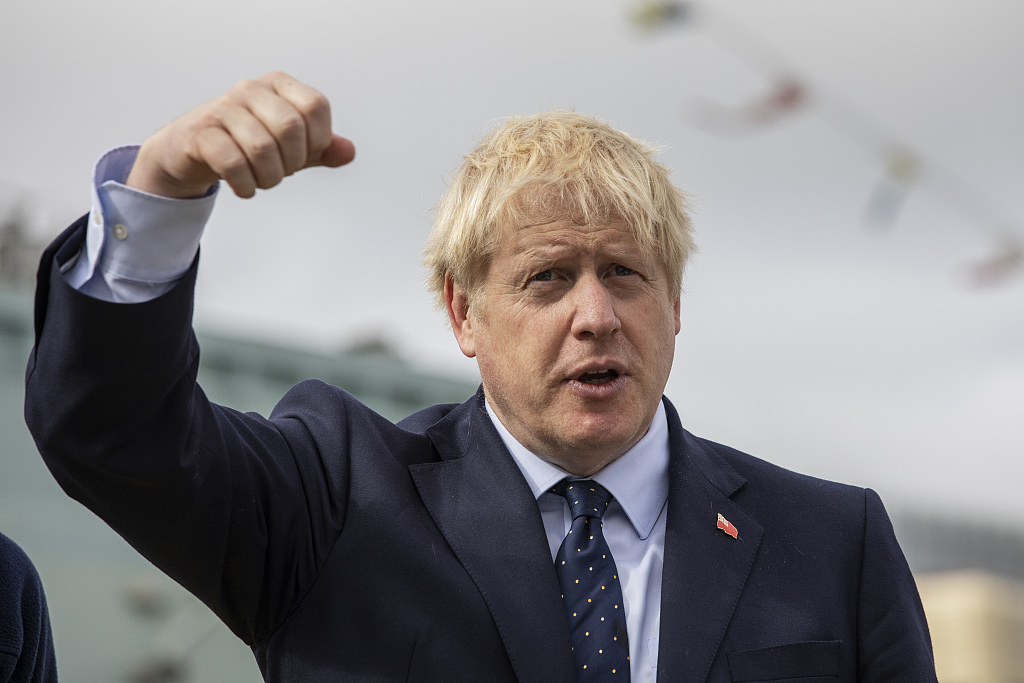
British Prime Minister Boris Johnson said on Friday there was the "rough shape" of a Brexit deal to be done and he was cautiously optimistic an agreement could be reached to smooth Britain's exit from the European Union.
"We are working incredibly hard to get a deal. There is the rough shape of a deal to be done," he told an event in northern England.
"We'll talk about the ideas that we have been working on, and we'll see where we get. I would say I'm cautiously optimistic."
Johnson is due to meet with European Commission President Jean-Claude Juncker in Luxembourg on Monday to discuss Brexit, Johnson's office said on Friday.
EU spokeswoman Natasha Bertaud told reporters that the two would have a working lunch that was arranged by "common accord."
Johnson is seeking to renegotiate the Brexit deal his predecessor reached with the European Union, ahead of Britain's planned departure on October 31.
He will also hold talks with Luxembourg's Prime Minister Xavier Bettel.
A UK government spokeswoman on Friday also confirmed EU and British Brexit negotiators will continue talks next week.
"The UK has presented some ideas on an all-island SPS (animals and food products) solution. Further discussions between teams will take place next week," the spokeswoman said.
Ireland: EU very concerned with the idea of N. Irish border veto
European Union negotiators are very concerned by the idea of handing Northern Ireland's devolved government the right to approve future regulatory changes as a part of finding a Brexit compromise, Ireland's foreign minister said later on Friday.
"There is certainly a concern at EU level over the idea that a devolved institution in Northern Ireland could have a veto over how the single market operates or a border on the single market operates. So it's not as straightforward as some people are suggesting," Simon Coveney told a news conference.
"As (EU chief Brexit negotiator) Michel Barnier has said, we will explore all ideas that are brought forward by the British government but they will be rigorously tested. There essentially aren't detailed proposals in writing, which has been a source of real frustration."
Johnson refuses to sign off on an agreement that includes the "backstop," a compromise intended to keep the frontier open for trade and crossings in all post-Brexit scenarios.
It was accepted by his predecessor Theresa May but repeatedly failed to win backing in the British parliament.
Eurosceptics fear the stop-gap measures designed for the border between EU member Ireland and the UK province of Northern Ireland would keep Britain indefinitely trapped in bloc's trade zone.

Prime Minster Boris Johnson aboard the Pharos moored alongside HMS Belfast in Southwark as part of London International Shipping Week, September 12, 2019. /VCG Photo
Read more:
Roadblocks in Brexit explained: the Irish border and Gibraltar
Brexit deadlock: What is the Irish backstop?
The Times reported on Friday that the DUP, a small Northern Irish party that had helped the ruling Conservatives in London form a majority in parliament since 2017, was now ready to abide by some EU rules.
But DUP leader Arlene Foster denied the report, calling it "nonsense." "UK must leave as one nation," she tweeted.
Johnson no longer commands a working majority in the House of Commons, and lawmakers have instructed him to seek a deadline extension from Brussels if no deal emerges.
Johnson has refused, vowing to get Brexit done on schedule and insisting he would strike a new deal.
(With input from Reuters, AFP)
(Cover: A combination photo of European Commission President Jean-Claude Juncker (L) and British Prime Minister Boris Johnson (R). /VCG Photo)

Copyright © 2018 CGTN. Beijing ICP prepared NO.16065310-3
Copyright © 2018 CGTN. Beijing ICP prepared NO.16065310-3